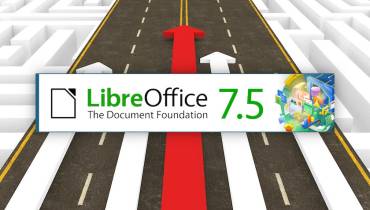Could Workplace Stress Be Affecting Your Life and Career?

Workplace stress is something that can seem inevitable these days, particularly if your financial stability is dependent on your paycheck.
In workplaces all across the world, workplace stress levels are worryingly high—and these are only increasing with heavier workloads and technology advancements, making it all that much harder to switch off when you’re not at work.
According to a study from the American Institute of Stress (AIS), 80% of workers feel stress on the job, and nearly half say they need help in learning how to manage stress. Another 42% say their coworkers need such help, believing that stress is a problem in their workplace.
For many companies, the progressive escalation of stress in the workplace over the past few decades has contributed to poor productivity, low morale, and even staff leaving.
While stress is a highly personalized phenomenon and can vary widely even in identical situations, AIS studies find that it may essentially be the result of exposure to a range of work, with occupational pressures and fears being far and away the leading source of stress.
Stress can make you feel distracted, out of focus, and irritable. When not dealt with correctly, stress can affect your performance and quickly lead to a burnout, which will only make matters worse even in your family life.
In smaller companies and startups, it is expected there is going to be stressful times at work. But it is vital to manage this stress and monitor your wellbeing and that of your team when the stressful times come. That way you’ll avoid the complications of a stressful workplace.
The Problems that Come With Stressful Workplaces
Many things can go wrong in a stressful workplace and impact on your career, personal life, and even health, if the stress is not contained.
Let’s explore some of the major issues that can result from stressful workplaces, and highlight what you can do to address the stress so it doesn’t impact your career, life, and health negatively.
Issue #1: Stress Hampers Building Strong Networks
How many times have you heard “it’s not what you know, it’s who you know” during your career? Whilst it may be an annoying saying, it is mainly true.
Without networking and growing your professional connections, your career will likely stagnate. Having a strong professional network is extremely valuable and goes way beyond just creating visibility, but it also means you’ll be the first to know about new opportunities that are coming up.
Building a strong network is also a great way of finding mentors who positively support you, influence your career and mindset, and even the other parts of your life.
However, for so many of us, networking can be uncomfortable and stressful. Some individuals feel they need to hide from their colleagues for fear of appearing like they are desperate for opportunities. If you’ve had a stressful day at work, often the last thing you feel like doing is going to talk to new people about your job, but this may be exactly the reason to go.
It is important to not completely brush off going to these networking events because you don’t feel like it. Sometimes, if you get chatting with the right person, they can make you see things a little differently and introduce inspiring ideas in your career or other field you are interested in.
That kind of productive chatting can be very helpful in alleviating work-related stress.

Issue #2: Stress Can Lead to Burnout
The World Health Organization (WHO) now recognizes workplace burnout as "a syndrome conceptualized as resulting from chronic workplace stress that has not been successfully managed." This characterization helps medical providers to diagnose the condition.
Burnout is a very real and very damaging stage of workplace stress. And burnout is still something which isn’t properly recognized by many companies as a serious issue in the workplace, thus resulting to further levels of stress for those suffering.
Earlier this year in May, WHO clarified in a tweet that burnout is an “occupational phenomenon” and not a medical condition. But the World Health Organization was also clear that the symptoms of burnout can be damaging to your overall health and quality of life.
Many businesses unfortunately don’t tackle stress symptoms until they have fully manifested in the employee, and this is the point where employees become physically ill and burnout.
There are three main characteristics of burnout you should beware of:
- Energy depletion or exhaustion,
- Mental distance from your job and usual tasks, or
- Feelings of negativism related to you job.
The symptoms of burnout can also be visible outside workplace environments and situations, and greatly impair your day-to-day management of everyday tasks.
People suffering burnout can feel overwhelmed with housework and be prone to refusing plans with family and friends. Even opening work emails can be too much for some employees.
Should any of these symptoms present themselves, it is important that you talk with your employer, a supportive colleague, workplace counselor, and or a physician.
While speaking up about your stress and burnout can be stressful in itself, it’s important to talk about it with someone.
Also, consider taking some time off to de-stress. Burnout is one of the biggest taboos surrounding workplace stress and many employees fear that suffering a burnout will ruin their career or put their employment status at risk. That shouldn’t be the case because stress can be managed.
Recognize the signs of stress and burnout early and arrest it before it becomes worse.

Issue #3: Stress Can Have Cumulative Health Effects
Many people believe that stress in the short-term is healthy. That it helps to refocus your brain, gets your blood pumping, and you get more work done.
However, long-term stress can have hugely damaging effects on your physical and mental health, and may even lead to unhealthy lifestyle behaviors.
When under a lot of stress at work, many of us struggle to sleep, eat and function. Many of us turn to alcohol consumption, smoking, overeating, and avoid the gym and regular exercise when we’re stressed. These behaviors and lifestyle changes can lead to long-term health ailments.
Suffering from stress can make you less productive and unfocused on what you are supposed to do, due to the troubling issues affecting your mind and physical body. Tension headaches, migraines, gut problems, and muscle tension are all common symptoms of stress.
Over half of all sick-days taken in the UK are due to these symptoms of stress—it’s a serious problem with real economic implications, too.
When you are suffering from heightened symptoms of stress, often the last thing you want to do is take time off. But, if you are truly feeling unwell, then for your own health and wellbeing you should take time off to rest and seek professional help where necessary.
If you know you will be going through some turbulent times at work, then it is important to eat a healthy balanced diet to maintain your energy and blood sugar levels.
Stay hydrated throughout and create time to work out and get in shape. There are many fun activities you can do regularly over the weekends as part of your healthy workout routine.
Make sure you eat a healthy breakfast in the morning and plenty of fruits and vegetables throughout the day. And if your healthcare professional has recommended it, take additional vitamins or supplements to help boost your energy and immunity system.
Keep in mind supplements are not replacements for a healthy diet when dealing with stress. Only use supplements as recommended by your doctor in addition to healthy diet choices to get the vitamins and minerals your body needs to fend of diseases and function optimally.
Conclusion
With the stigma around workplace stress seemingly worsening over time, there needs to be much more done in the workplace to help tackle these issues effectively.
Many conscientious employees worry that stress will have a negative impact on their career, while employers worry it may negatively impact on their business.
While there are many misconceptions by some employers when it comes to workplace stress that fuel the stigmas further, approaching the issue head on in an empathetic manner is important for all stakeholders and concerned parties. Having someone you can trust to talk to if you are suffering work-related stress is an important first step to address the issue.
Ultimately, when people manage and reduce their stress levels at work, they have a healthy mind, body, and spirit, which leads to happier and more productive workers,
No matter where you work, when workplace stress is reduced, people and the economy will all be better for it.




















